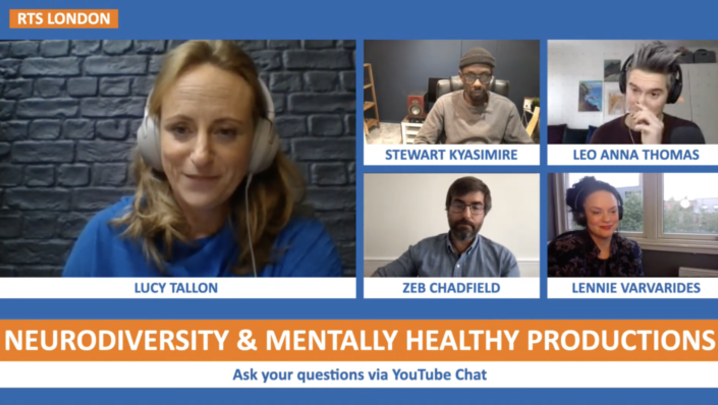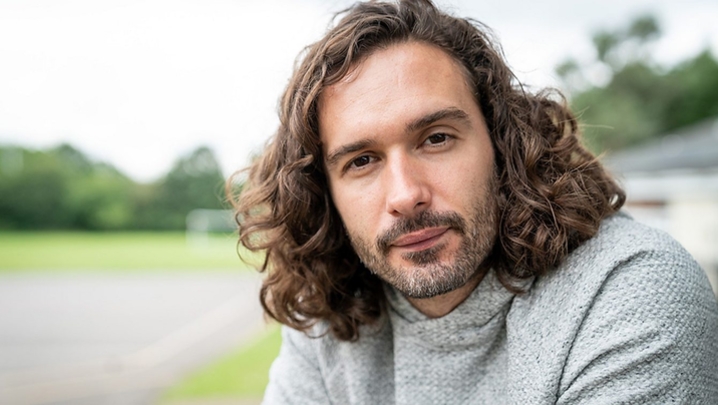“Mental ill health defined my childhood,” revealed Hollyoaks executive producer Bryan Kirkwood at an RTS event held during Mental Health Awareness Week in May.
The long-running Lime Pictures soap for young adults has been widely praised for its portrayal of mental ill health. Storylines have addressed depression and bulimia and, earlier this year, self-harm, which ended with the death of the character, Lily McQueen, from sepsis.
“My mum took her own life when I was seven and I later lost my dad to addiction,” Kirkwood said. “More than mental ill health, it was the silence that crippled us. Nobody ever spoke about it.
“Fast forward to the job I’m doing on Hollyoaks and I take very seriously the responsibility to help people start a really difficult conversation … There’s an epidemic of ill health that’s happening to young people.
“It’s really important that everyone can grow up seeing themselves on the telly. I’m proud that Hollyoaks is getting there in giving our audience themselves reflected back.”
Kirkwood was part of a six-strong panel at the RTS early evening event, which was chaired by the Broadcasting Press Guild’s Caroline Frost.
Alex Pumfrey, CEO of the Film & Television Charity (formerly the Cinema & Television Benevolent Fund), claimed that in TV, “We ignore [mental ill health], we enable it and we legitimise it.”
She said: “Mental health has been ignored as a serious issue in our industry for far too long.”
Yet, Pumfrey added: “We know nothing of the prevalence and nature of mental health within the TV sector.”
“We [do] know that we send people off to work very long hours, often away from home to tight deadlines; in newsrooms where they’re exposed to traumatic material. They’re in work one moment and out of it the next, never being able to commit to family and friends.
“Two-thirds of the industry is freelance where life can be exciting but precarious. There’s rarely anyone to talk to and there’s the risk of being seen as difficult and jeopardising your next gig. So, you keep your game face on and you shut up.”
“Mental health has been ignored as a serious issue in our industry for far too long”
Richard Bentley, the creative director of Postcard Productions, told the story of his own episode of mental ill health.
He has obsessive-compulsive disorder, which creates “a huge amount of anxiety that just lives under the surface. I covered it up with odd quirks.”
Working as an assistant producer more than a decade ago, he became ill. “One day I woke up and my funny little ticks had changed. My intrusive thoughts that I could manage and compulsions that I experienced had flipped and multiplied. It [had reached] a crisis point.
“I was really unwell and I didn’t take a minute off work. No one asked if I was all right and I think it would have been very obvious from my behaviour that I wasn’t very well.
“My boss said, ‘Something’s happened. You’ve been here for over a year and we want old Rich back – we don’t like new Rich.’ [Those] were his exact words.”
Yet, Bentley “still didn’t feel safe enough to be able to disclose what was going on”.
He underwent therapy, while working, and decided to make a film about his experiences.
Bentley pitched the idea to a broadcaster: “I was told that I was too well and that it was a shame I hadn’t come when I was sicker. Also, I was too middle-class looking so it wouldn’t get the ratings. From that point I decided that I would use the skills I had acquired in television to make films that would have a social impact.”
He succeeded. Bentley and Sam Forsdike set up Postcard Productions in 2010 and made The Stranger on the Bridge, the story of Jonny Benjamin’s search to find the stranger who talked him out of jumping off Waterloo Bridge, for Channel 4.
*Click here to watch the event in full*
Jessica Fox, who has played Nancy Osborne in Hollyoaks for 14 years, discussed the stress of working on the soap. “It’s amazing but it’s crazy. We have no time to call our own – we are on call five days a week,” she said.
“It doesn’t matter if you’re having a bad day, tired or sick, you’ve got to be there, know your lines and turn out an amazing performance. That’s a really tall order to ask a lot of young people to do.”
Julia Lamb, from mental health charity Mind’s media advisory service, advises soap writers on their storylines and character development. For Coronation Street, Mind “provided a case study who could talk about her own experience of psychosis to the production team and the actor Ali King” to ensure the deteriorating mental health of her character, Carla Connor, was accurately portrayed.
“She’d had a trauma in her life and psychosis had come out of the blue for her … and she was a woman of similar age as the character and we felt they could relate well to each other,” said Lamb.
More than a decade ago, Anna Williamson, currently the life coach on E4 reality show Celebs Go Dating, had a breakdown while working as a presenter on GMTV children’s strand Toonattik.
“I’ve been managing generalised anxiety disorder, depression and panic disorders ever since – and I’ve managed it really well,” she said. “I’m passionate about proving and showing people that you can work with a mental health issue.”
She concluded: “We’re not there yet – I think it still takes a lot of guts to openly admit [a mental health condition, but] I do think we’ve made some massive headway in the last few years.”
“Promoting wellbeing and mental health in the TV industry” was an RTS early evening event held at Channel 4 in central London on 14 May. It was produced by Jonathan Simon, Terry Marsh and Briony Robinson. A longer report of this event will appear in the June issue of Television.




















